-
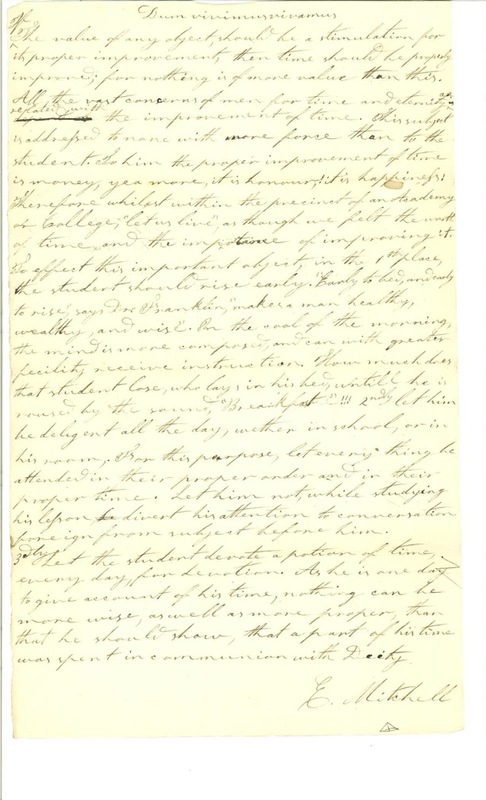
"Therefore whilst within the precinct of an Academy or College, "let us live," as though we felt the work of time and the importance of improving it."
-
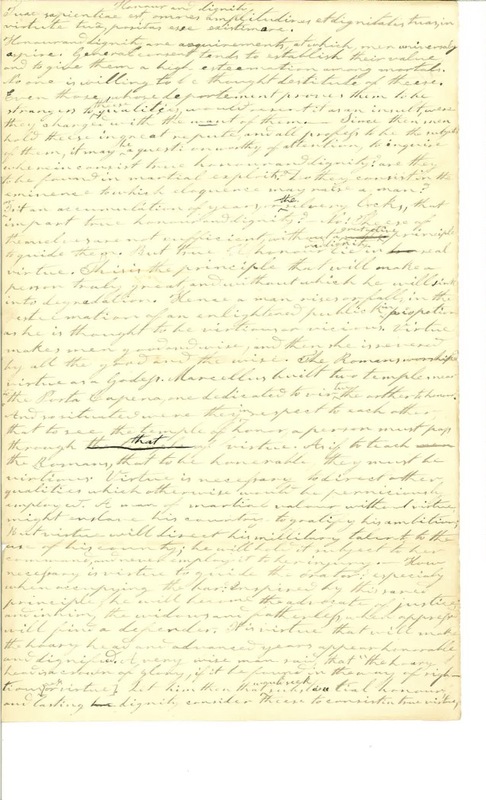
"But true honour and dignity lie in real virtue…Hence a man rises or falls in the estimation of an enlightened publick in proportion as he is thought to be virtuous or vicious."
-
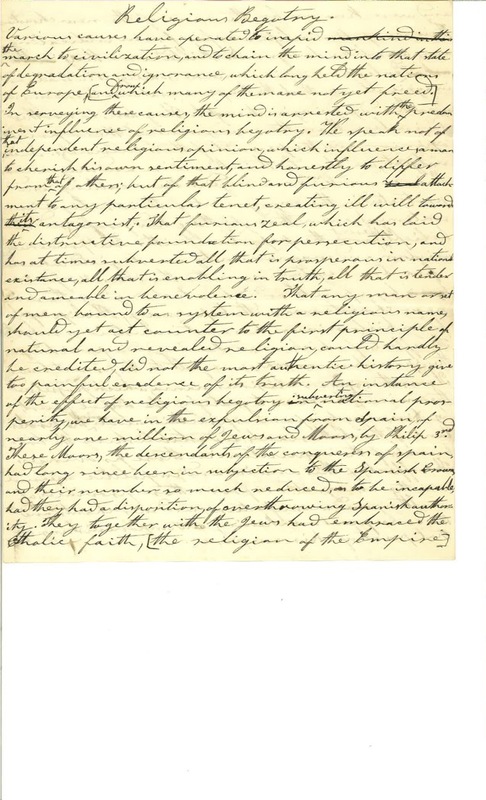
In his essay on "Religious bigotry," written in his sophomore year, Mitchell deplored the expulsion of Jews and Moors during the reign of Philip III, king of Spain from 1598 to 1621.
-
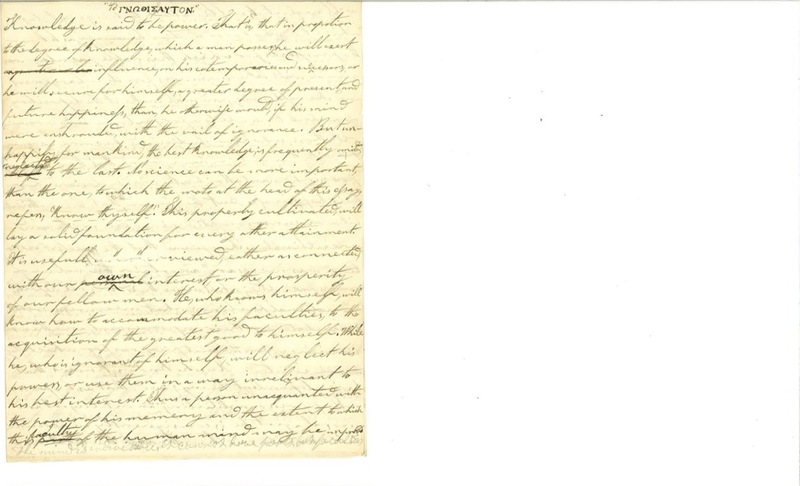
Mitchell contends that one who has studied human nature in himself is better prepared to understand human nature in others and in society. He concludes his essay with an eye to the future. "How important then is this knowledge to our own interest? Let the student then with all his getting, get this noble science. It is this that will buy a foundation for his future greatness."
-
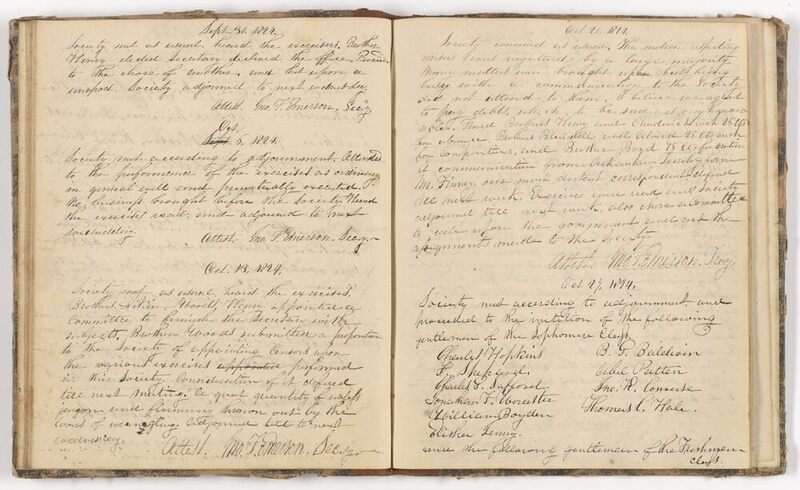
One of Mitchell's presentations to the Social Friends was on "The Age of Pericles"—for him, an unusual departure from subjects related to Christianity. He commented in the introductory paragraph that "Little can be written (by a freshman) within the limits of an essay."
-
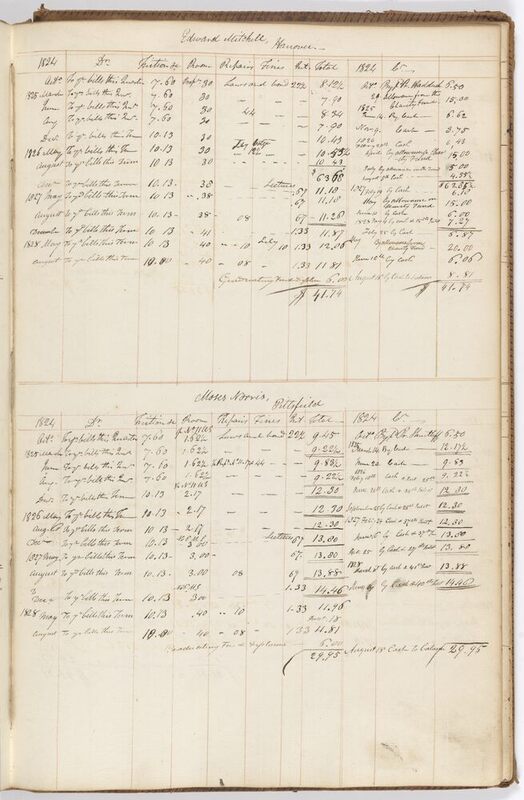
During his four years at Dartmouth, the tuition, which included a library fee, was $28 per year, and total expenses—including tuition, room and board, firewood, and the "usual incidentals"—were estimated by the college trustees at $101.87 per year. A five-dollar graduation fee, which went to the college president, was imposed at the completion of studies, and one dollar was charged for the diploma.
-
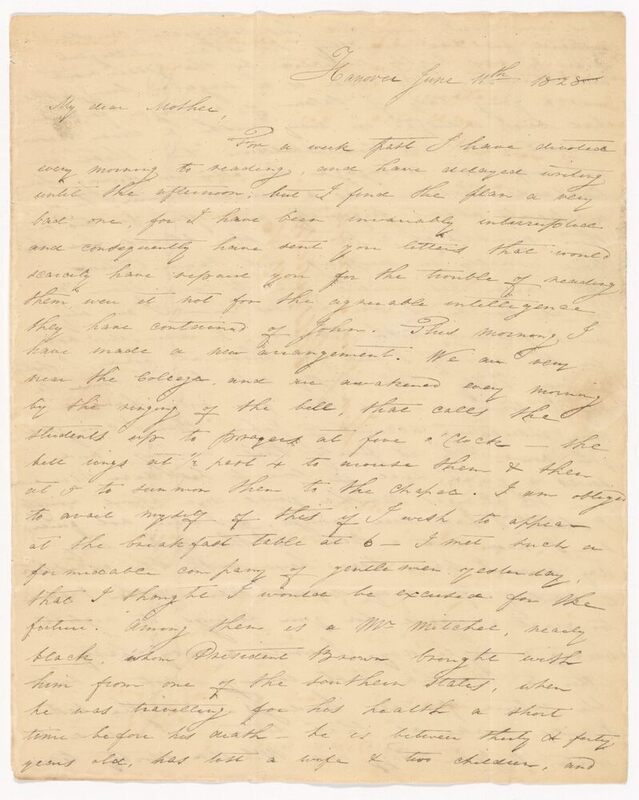
In 1828, Sarah Parrott was in Hanover caring for her brother when she first encountered Mitchell at the breakfast table in the boarding house. She noted that as a student, Mitchell was "very highly respected by the government [i.e., the faculty] and the students." Mitchell's fellow student Alpheus Crosby, reminiscing years later, wrote that "his character, bearing, and intellect were such that he must have been shameless who could have treated him with disrespect."







